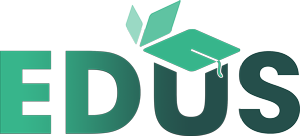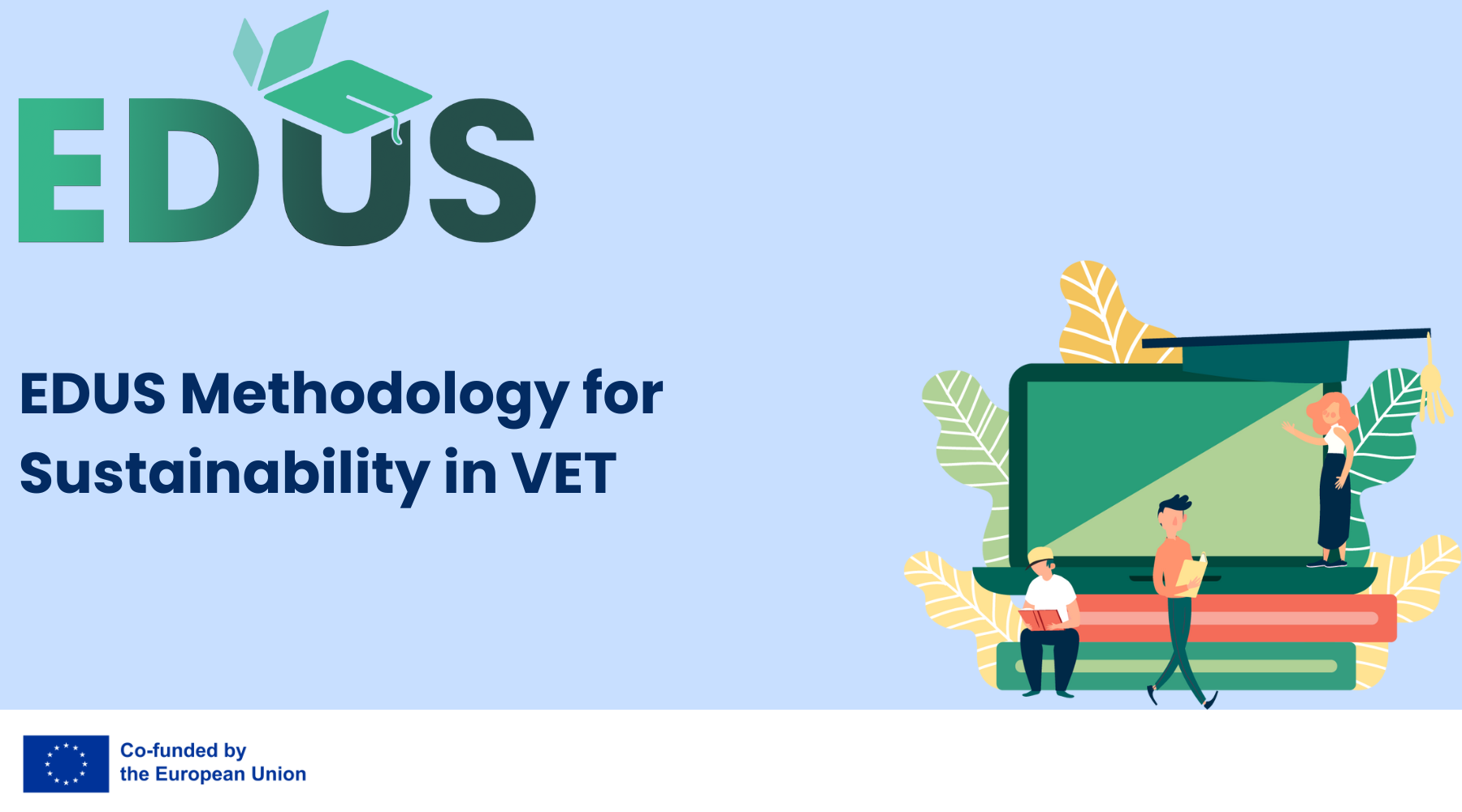
An interview with an EDUS partner
03/18/2025 Carla Martinez
EDUS aims to promote sustainability in VET education. For this interview, we sat down with Irene Medina, EDUS project member, to discuss the ongoing efforts of the project. Irene shared insights into how the project is integrating sustainability into educational practices.
Could you tell us a little about the EDUS project?
EDUS is an Erasmus+ project, funded by the European Union that aims to foster education in sustainability in VET training. Basically, what we are doing is trying to identify the needs of VET teachers and develop some tools so they can improve the teaching on sustainability.
We have been hearing a lot about sustainability lately, it is a European priority, could you tell us how EDUS is fostering sustainability in education?
So, we want to give tools that can be useful for VET trainers. Sometimes, when we have EU priorities like sustainability, they’re created to be more focused on the needs of the job market than those of the education system. This means it can be hard to integrate sustainability practices before they are required in a working environment, at which time it is too late to understand them at a deeper level. So, we are trying to focus on that.
What do these tools EDUS is developing entail?
First, we developed a competence framework by identifying key sustainability competencies. Currently, there are several frameworks available, such as GreenComp and the SDGs, which address similar topics such as climate change, gender equality, or poverty. So, we identified them and created three spheres:
- climate
- people
- prosperity, which refers to the economic part of sustainability.

From that, we are going to create a training programme and different tools, such as lesson plans. They will incorporate how sustainability competences can be taught.
So, while making these tools, I understand you identified some needs regarding sustainability in education, especially in VET?
Yes, we identified a series of these needs by creating a codesign lab with some vet teachers. This means we gave them the framework we created and we did some creative activities, as well as a brainstorming session to gauge their knowledge in sustainability and how they feel they can include these issues to their classroom.
Essentially, the main need we identified in the countries where EDUS is being developed, is that we have really closed learning curriculums. This means it can be hard to work on sustainability when schools don’t have lessons covering the topic specifically. This is added to the lack of time and knowledge. Sometimes the teachers don’t know enough about sustainability per se, or how to integrate these ideas into their lesson plans.
So bearing these needs in mind, and having finished the competence framework, what is next for EDUS?
We are now developing a training programme and toolkit. This way, proper tools will be available for interested teachers. They will also be open access online. To do this we are having a new codesign lab with more VET trainers. We will test this programme and toolkit to get their feedback and make the necessary changes, so that the toolkit responds to the teachers’ needs.
In a few months, after these resources are at their final stage, we will hold a piloting session. In it we will use all these tools in a real lesson and lesson plan to see what learners also think of them.
Thank you very much for your time Irene.







